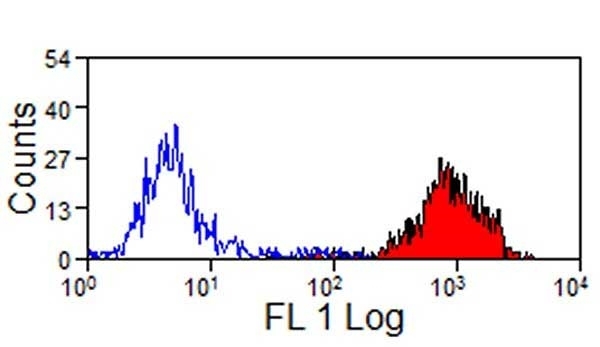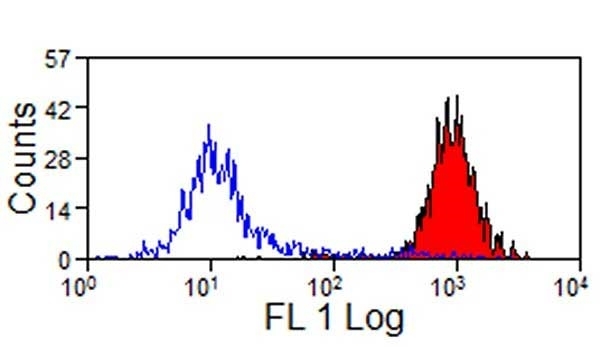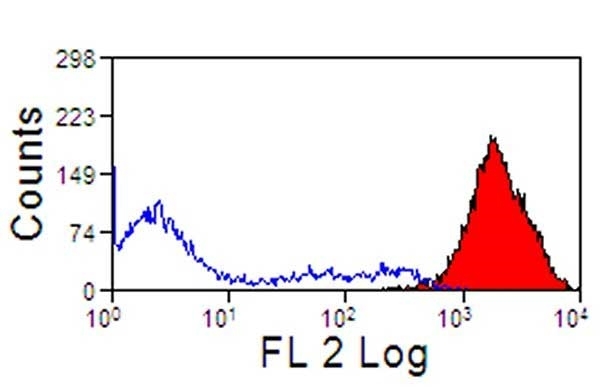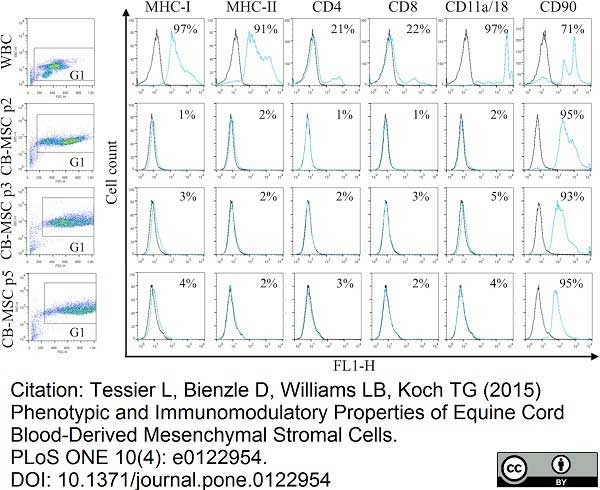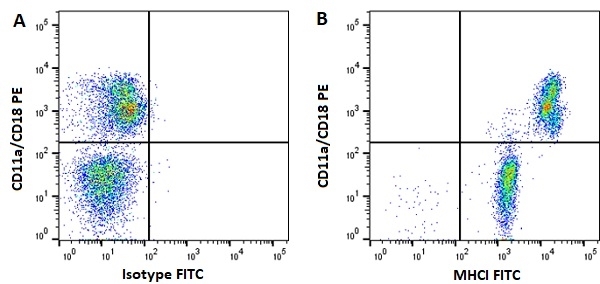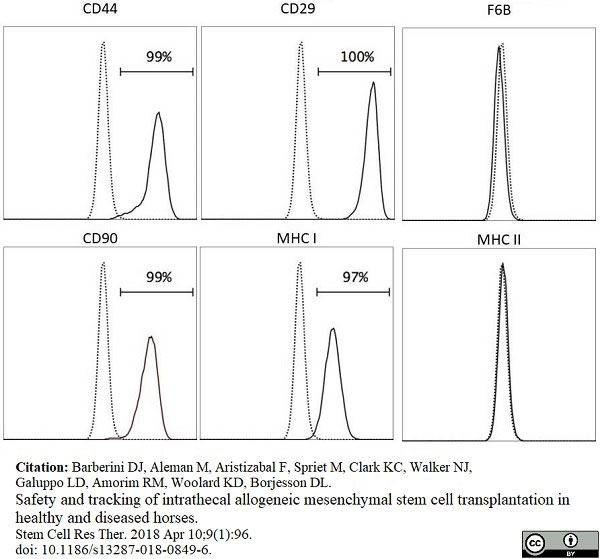MHC Class I Monomorphic antibody | CVS22






Mouse anti Horse MHC Class I Monomorphic
- Product Type
- Monoclonal Antibody
- Clone
- CVS22
- Isotype
- IgG2a
- Specificity
- MHC Class I Monomorphic
| Mouse anti Horse MHC Class I Monomorphic antibody, clone CVS22 recognizes monomorphic equine MHC Class I and was classified at the International Equine Leucocyte Antigen Workshop. MHC class I is expressed by all nucleated cells. The major histocompatibility complex (MHC) is a cluster of genes that are important in the immune response to infections. In horses, this complex is referred to as the equine leukocyte antigen (ELA) region. |
- Target Species
- Horse
- Product Form
- Purified IgG - liquid
- Preparation
- Purified IgG prepared by affinity chromatography on Protein G from tissue culture supernatant
- Buffer Solution
- Phosphate buffered saline
- Preservative Stabilisers
- 0.09% sodium azide (NaN3)
- Carrier Free
- Yes
- Immunogen
- Equine leucocytes.
- Approx. Protein Concentrations
- IgG concentration 1.0 mg/ml
- Fusion Partners
- Spleen cells from immunized mice were fused with cells of the X63.Ag 8.653 mouse myeloma cell line.
- Regulatory
- For research purposes only
- Guarantee
- 12 months from date of despatch
Avoid repeated freezing and thawing as this may denature the antibody. Storage in frost-free freezers is not recommended.
| Application Name | Verified | Min Dilution | Max Dilution |
|---|---|---|---|
| Flow Cytometry | 1/25 | 1/200 | |
| Immunohistology - Frozen | |||
| Immunoprecipitation |
- Flow Cytometry
- Use 10μl of the suggested working dilution to label 106 cells in 100μl
References for MHC Class I Monomorphic antibody
-
Lunn, D.P. et al. (1998) Report of the Second Equine Leucocyte Antigen Workshop, Squaw valley, California, July 1995.
Vet Immunol Immunopathol. 62:101-143 -
Mérant, C. et al. (2009) Young foal and adult horse monocyte-derived dendritic cells differ by their degree of phenotypic maturity.
Vet Immunol Immunopathol. 131 (1-2): 1-8. -
Carrade, D.D. et al. (2011) Clinicopathologic findings following intra-articular injection of autologous and allogeneic placentally derived equine mesenchymal stem cells in horses.
Cytotherapy. 13 (4): 419-30. -
Soboll Hussey, G. et al. (2014) Innate immune responses of airway epithelial cells to infection with equine herpesvirus-1.
Vet Microbiol. 170 (1-2): 28-38. -
Tessier, L. et al. (2015) Phenotypic and immunomodulatory properties of equine cord blood-derived mesenchymal stromal cells.
PLoS One. 10 (4): e0122954. -
Maumus M et al. (2016) Utility of a Mouse Model of Osteoarthritis to Demonstrate Cartilage Protection by IFNγ-Primed Equine Mesenchymal Stem Cells.
Front Immunol. 7: 392. -
Barberini, D.J. et al. (2018) Safety and tracking of intrathecal allogeneic mesenchymal stem cell transplantation in healthy and diseased horses.
Stem Cell Res Ther. 9 (1): 96. -
Rapacz-leonard, A. et al. (2018) Major histocompatibility complex class I in the horse (Equus caballus) placenta during pregnancy and parturition.
Placenta. 74: 36-46.
View The Latest Product References
MCA1086GA
If you cannot find the batch/lot you are looking for please contact our technical support team for assistance.
Please Note: All Products are "FOR RESEARCH PURPOSES ONLY"
View all Anti-Horse ProductsAlways be the first to know.
When we launch new products and resources to help you achieve more in the lab.
Yes, sign me up